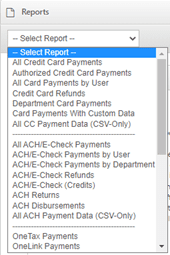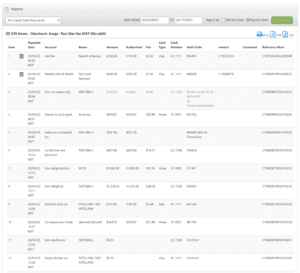As a business owner in this currently unstable economy, you are tracking every cost and monitoring every revenue stream. One area that can be easily overlooked is attempted payments. To understand attempted payments, we first need to know how payment processing platforms work.
Payment processors like IntelliPay have designed their platform to securely send sensitive customer information and then retrieve an authorization from the issuing bank (the financial institution who issues the credit and debit card or from whose accounts ACH transactions are debited). The platform then sends the authorization to the banks for settlement. Payment processors have visibility into the settlement process but have no control over it. For example, a card transaction authorization will appear to the cardholder as “pending” on their mobile banking. It is only when the merchant’s credit card processor successfully settles that transaction with the card brands (Visa, Mastercard, Discover, American Express) money do the funds move. So, here is a quick rule of thumb: while an authorized transaction is not necessarily settled it is attempted; however all settled transactions are authorized.
The only surefire way to confirm all attempted payments have settled properly is to reconcile against your bank account promptly and consistently. Bookkeeping duties might not rank high on your list of fun things to do, can stack up pretty quickly and becomes more painful the longer you wait to match up your bank activity against payment processing software. That being said, sometimes a little extra motivation helps. We know of one company, that failed to recognize over $2 million in revenue, by not properly reconciling across all card brands. So, how do we make reconciling your payments with your bank account more approachable? Here are three ideas.
Three Ideas
1) Make a list all the payment types you accept. Meaning that if you process credit cards only, which card brands do you accept? What about ACH payments, RDC or scanned checks, accept those? Each of these payment methods will settle separately often to different financial institutions and will be listed separately on your merchant processing statement. Typically, your ACH payments at processed by the same ACH company. Each ACH company has an ID each time; this ten digit number can appear next to each deposit. Keeping track of where deposits are made provides a check list to verify against during reconciliation.
2) Make sure your credentials are up to date and you can successfully log into your payment software. While this may sound like a no-brainer, payment processing software has security features built in that require a user to change their passwords on a regular schedule. The reports generated by your payment platform usually have the best breakdown of each deposit. When running reports on the IntelliPay platform it is important whether you are running your report by the effective or payment date. The effective date is the bank date and payment (authorization) date is the entry date. Key information when you are doing a reconciliation.
IntelliPay has several reports showing payment activity, and custom reports can be created. See image below.

Here is a portion of an IntelliPay “All Credit Card Payments” report.

If you’re an IntelliPay customer and need help, email our support team (support@intellipay.com) or give us a quick call at (855) 872-6632 option 2 if there is any trouble.
3) Know what time your payment platform sends payments or batches aka batches out. Payment processing platforms will always have a specific time every day they send all payments (a batch) from the previous 24 hours to the banks for settlement. In payment lingo that is a cutoff time. As a general rule, credit cards batch out or cutoff at midnight eastern time, while ACH times vary and can be customizable.
Any transactions initiated after that cutoff time will be sent off the following day. Keeping that daily batch cutoff time in mind will help simplify your reconciliation process.
Attempted Payments Summary
An important thing is our quick rule of thumb: while an authorized transaction is not necessarily settled it is attempted; however all settled transactions are authorized. To ensure your business is recognizing all its revenue and costs, it is important to use the reporting tools built into your payment processing platform to reconcile all your payment accounts with your bank statements in a timely manner. This will not only minimize the bookkeeping work but will help you spot any irregularities.
If the reporting you are getting from your current payment processor is slowing down your reconciliation process, or you need to go into more than one system for different payment types, we should talk. IntelliPay offers a single platform for every payment type with reporting that will help you minimize time spent reconciling payments, and so you can spend more time on your business. To talk with one of consultants, visit https://intellipay.com/talk-to-a-consultant/ or call 855-872-6632 option 3.

